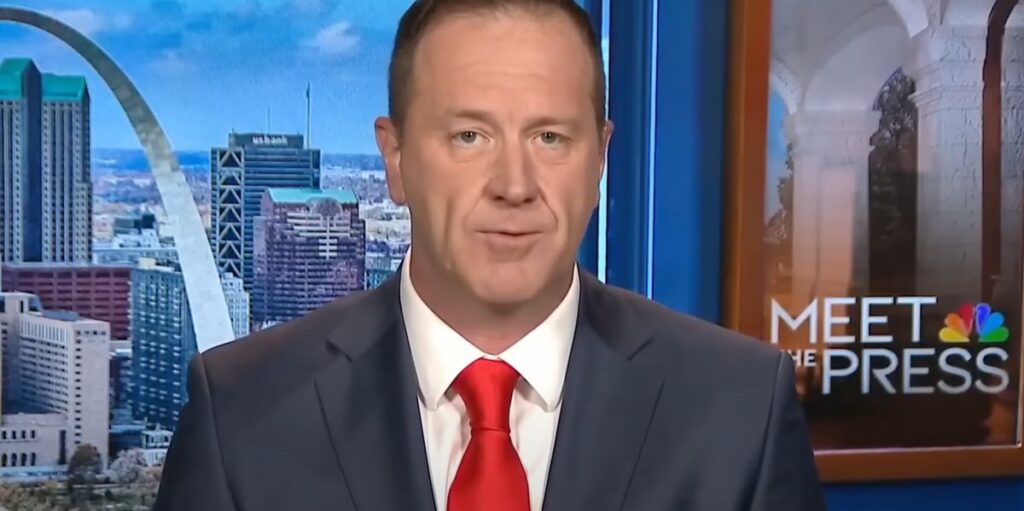Sen. Eric Schmitt (R-Mo.) recently made headlines for calling for the immediate dismissal of Justice Department staff involved in cases against President-elect Donald Trump. In an interview on NBC’s “Meet The Press,” Schmitt accused the DOJ of being “weaponized” against Trump during President Joe Biden’s administration. He claimed that President Biden and Attorney General Merrick Garland were conspiring to undermine their chief political opponent, echoing Trump’s longstanding assertions regarding his treatment by the federal government. Schmitt’s accusations come on the heels of his observations about the political landscape, suggesting a revival of old cases against Trump was in direct response to Biden’s comments, which he interpreted as an assertion against Trump’s potential return to the presidency.
Schmitt further elaborated on his views regarding accountability within the Justice Department, indicating that he believed those involved in prosecuting Trump should face consequences, calling for immediate terminations rather than criminal charges against the top officials. He framed the DOJ’s actions as a politically motivated assault aimed at keeping Trump from running for office or even potentially imprisoning him over his political activities. His statements resonate with Trump’s narrative that the legal challenges against him are a partisan attack rather than legitimate legal proceedings addressed in a court of law.
The prosecutions initiated against Trump by the DOJ include charges relating to his attempts to overturn the 2020 presidential election results and his alleged mishandling of classified documents post-presidency. Recently, special counsel Jack Smith has indicated plans to wind down these cases and provide detailed briefs by December 2. This development comes amid reports that Smith and his team could resign as Trump prepares for his inauguration, illustrating an abrupt shift in the prosecutorial landscape surrounding Trump’s legal troubles.
In the context of legal accountability, Trump has also expressed intentions to fire all DOJ officials who participated in the cases against him, which raises the stakes for the integrity of the department. With complications arising from previous claims about election fraud, Trump has reiterated his desire for investigations into purported fraud in key battleground states, despite earlier admissions from officials like former Attorney General Bill Barr, who stated that there was no evidence supporting widespread fraud that could alter the election’s outcome. Such moves by Trump and his allies are indicative of a broader strategy to contest the legitimacy of the 2020 election results.
Following the withdrawal of former Rep. Matt Gaetz from consideration for Attorney General, Trump announced the appointment of Pam Bondi, former Florida Attorney General, for the position, illustrating an ongoing effort to reshape the DOJ’s direction. Trump’s statement accompanying the announcement encapsulated his grievance against what he perceives as a politically biased department, pledging to redirect its focus toward crime-fighting and restoring safety rather than pursuing politically charged cases.
In conclusion, Schmitt’s comments reflect a significant sentiment among Republican circles that the DOJ has overstepped its bounds in its investigations into Trump. As the political dynamics shift following the midterms and with Trump’s impending second term, the rhetoric around accountability and the integrity of the Justice Department is expected to intensify. The looming uncertainties regarding the legal fates of Trump and the involved personnel give rise to a contentious atmosphere, with broad implications for how justice is administered in politically charged contexts. The interplay between law, politics, and governance is clearly at the forefront as Trump negotiates his path forward amid these legal challenges.

